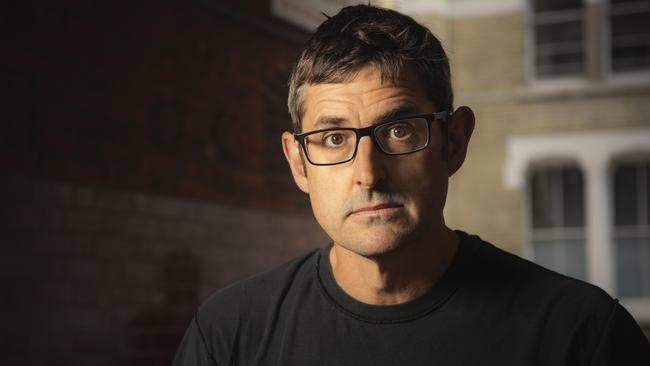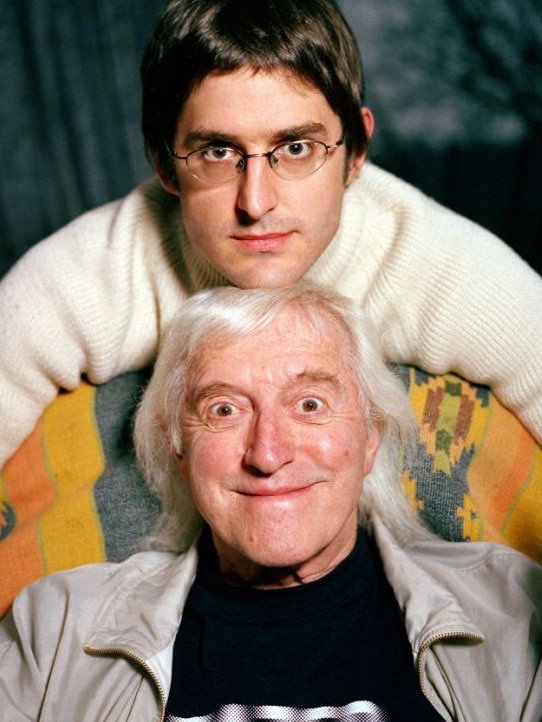Louis Theroux: Broadcasters turning into cowards for fear of causing offence
Documentary filmmaker says organisations such as the BBC need to remain bold in the face of anything-goes extremists able to build online audiences

Louis Theroux has warned that broadcasters are “playing it safe” and avoiding difficult subjects for fear of causing offence.
The filmmaker, who has made a string of documentaries for the BBC on difficult topics including Jimmy Savile, said he has concerns that shows about “extremists, sex workers and pedophiles” are less likely to make it to air.
He believes they are at risk of becoming casualties of a nervousness that is steadily infecting traditional broadcasters, including the BBC, amid an increased focus on representation and “who gets to tell what story about power and privilege”.
“The very laudable aims of not giving offence have created an atmosphere of anxiety that sometimes leads to less confident, less morally complex filmmaking,” said Theroux.
“The precepts of sensitivity have come into conflict with the words of George Orwell inscribed into the walls of New Broadcasting House, ‘If liberty means anything at all, it means the right to tell people what they do not want to hear’.”

Theroux said it was vital that broadcasters remain bold in an increasingly febrile environment in which the stakes are greater than ever as individuals with extreme views are able to build their own audiences using social media.
“The fact that the manosphere, the conspiracy community, the far right have real power means we should be on our mettle to report responsibly, not hide from it, or to report it in a way that feels po-faced, or which lacks nuance, or which lacks the confidence to understand its subjects rather than simply to deplore them in exposes so heavy-handed and clumsy that they end up undermining themselves,” he said.
Theroux, who established his own production company, Mindhouse, in 2019, urged broadcasters not to take a cowardly approach as he noted the “pervasive nervousness” among networks in the US, who shied away from his series about the far right, Forbidden America: Extreme and Online, featuring the white nationalist Nick Fuentes.
He called on the BBC, for which he has worked for the bulk of his career, to stand up for itself in an environment in which it frequently faces attacks from its own former employees. “I see all too well the no-win situation it often finds itself in. Trying to anticipate the latest volleys of criticisms. Stampeded by this or that interest group. Avoiding offence,” he said.
“And so there is an urge to lay low, to play it safe, to avoid the difficult subjects. But in avoiding those pinch points and unresolved areas of culture where our anxieties and our painful dilemmas lie, we aren’t just failing to do our jobs, we are missing our greatest opportunities. Playing it safe and following a formula may be a route to success for some but it never worked for me. The risk of not taking risks is something worse. Not just failure, but a kind of loss of integrity.”
He noted that TV is becoming “besieged” by the threat of deepfakes and artificial intelligence (AI) which has contributed to the Hollywood strikes from actors and writers. “I find the new world we are in troubling and exciting in roughly equal measure,” he said. However, he does not anticipate AI replacing the work of documentary makers. “What it won’t be able to do is take risks because that involves danger,” he said.
“And there’s no danger for machines. Risk involves real feeling and the possibility of humiliation, embarrassment and failure.”



To join the conversation, please log in. Don't have an account? Register
Join the conversation, you are commenting as Logout